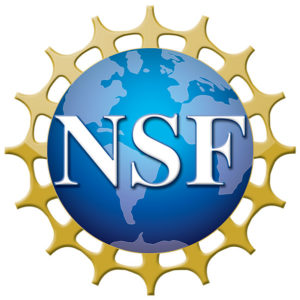 https://www.nsf.gov/awardsearch/showAward?AWD_ID=1954946&HistoricalAwards=false
https://www.nsf.gov/awardsearch/showAward?AWD_ID=1954946&HistoricalAwards=false
Investigator(s):
Shan Jiang, sjiang1@iastate.edu (Principal Investigator)
Gul Okudan Kremer (Co-Principal Investigator)
Ann Gansemer-Topf (Co-Principal Investigator)
Nigel Reuel (Co-Principal Investigator)
Qing Li (Co-Principal Investigator)
Abstract
This National Science Foundation Innovations in Graduate Education (IGE) award to the Iowa State University will establish sustainable learning communities of Graduates for Advancing Professional Skills (GAPS) and design a new framework of training that adapts the project management skills from industry to academic research. The program will address two fundamental education research questions: How can project management skill training be integrated with thesis research in graduate education? What is the role (or value) of learning communities in enhancing the training and retention of professional skills and effectiveness of thesis research? Studies suggest that current graduate education focuses too narrowly on thesis research, and graduate students are not well prepared with skills for future work in industry or the academy. However, limited resources and lack of faculty support prevent students from committing to skill training. To address these challenges, this e program will develop innovative training approaches to help students learn and practice project management skills.
Utilizing the framework of communities of practice, the project will have two major innovations. The first is engaging students with self-directed, learning activities to produce and evaluate new course content as they learn from the curated online modules. The second is practicing the professional skills integrated with the thesis research. This new learning model has the potential to fundamentally change the culture of graduate education, efficiently utilize the current resources, and obtain faculty buy-in. Associated research design will explore factors that may lead to the success of a learning community, help reconceptualize current graduate education and encourage broader adoption of these new approaches within and beyond STEM fields. The evaluation approach is informed by the pragmatic evaluation paradigm, and a variety of data will be collected in the study including program participation data, document analysis, student surveys, and faculty and industry partner interviews. The program will rigorously test over multiple cohort iterations and with control groups the benefits of this approach, including the synergy created between thesis research and professional skill training through the GAPS program. The goal is to disrupt the status quo of graduate education (courses followed by individual research) and build sustainable GAPS communities that can effectively improve professional skills for graduate students. Ultimately, the program will improve graduate student job readiness and placement upon graduation.
The Innovations in Graduate Education (IGE) program is focused on research in graduate education. The goals of IGE are to pilot, test and validate innovative approaches to graduate education and to generate the knowledge required to move these approaches into the broader community.
This award reflects NSF’s statutory mission and has been deemed worthy of support through evaluation using the Foundation’s intellectual merit and broader impacts review criteria.